EN

Portuguese dictionaries tell us that the word ‘natal’ refers to ‘birth’, to the place where something or someone was born, or even to the festival that celebrates the birth of Christ. Leaving theoretical concepts behind, Christmas (with a capital letter, because the evolution of the word has led it to become a proper name) can also be synonymous with traditions, smells, routines, flavours and colours. For the protagonists of today's story, Christmas, which begins in the days of the ‘short sleeve’, is accompanied by music, (many) rehearsals and concerts.
Ensemble Vocal Pro Musica
The Vocal Ensemble Pro Musica (EVPM), with 33 years of history, has one of the highlights of its season at Christmas. Led since its foundation by conductor José Manuel Pinheiro, it is made up of around 100 members who come together twice a week to rehearse. On the day of the national team's match at the Dragão, work continues with the necessary attention to prepare for the four concerts that ‘are coming up’.
Friday night could mean going out with friends or family evenings, but for EVPM it's rehearsal day. Today's focus is the concert that will take place on 13 December in the church of São João Novo, at 10pm, at the invitation of the Centro Social e Paroquial de São Nicolau.
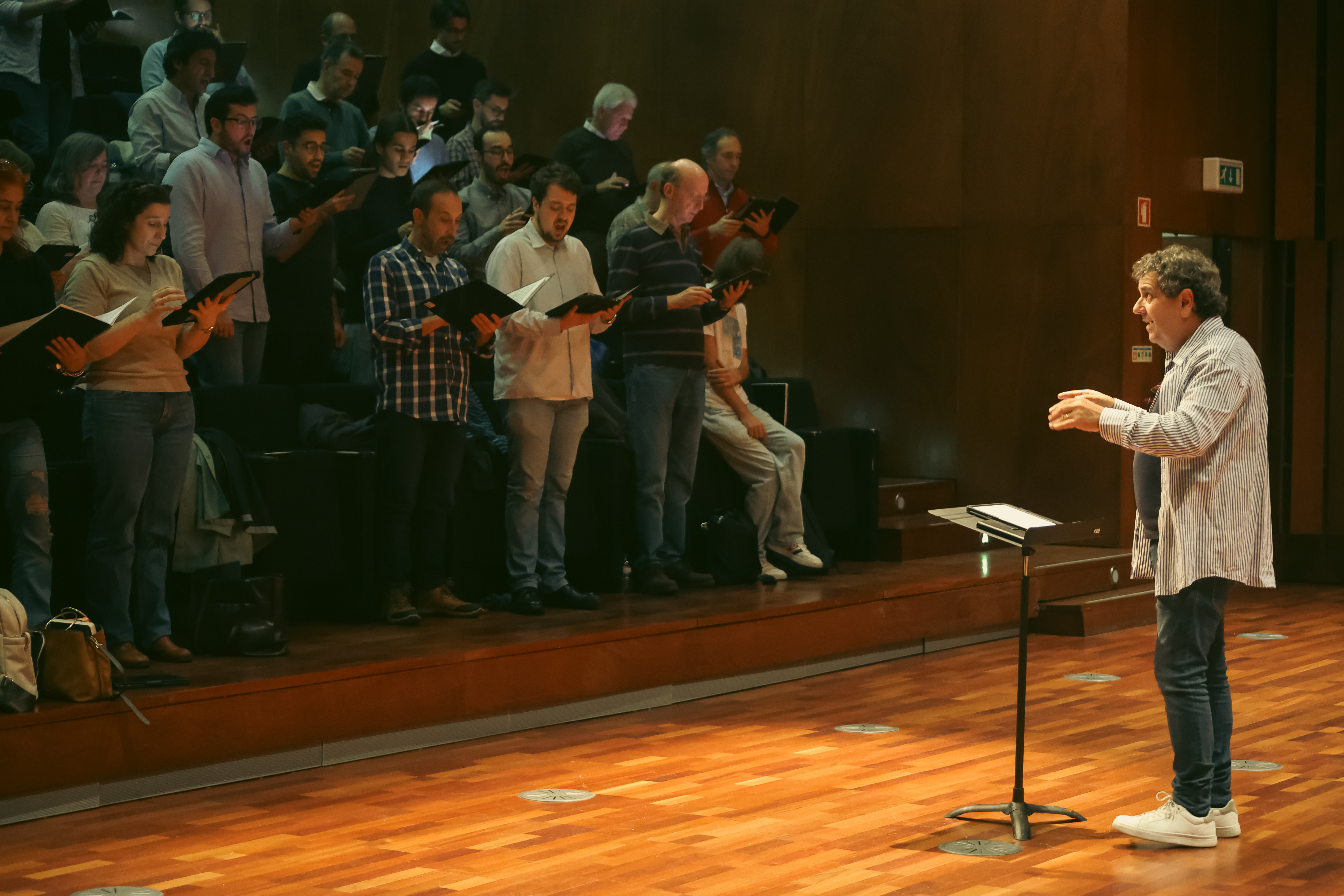
© Inês Aleixo
This concert is part of a Living Nativity Scene, which depicts the journey of the Magi on their way to Bethlehem. Behind the human figures representing Mary, Joseph, Jesus and the Wise Men, community members from Porto's Historic Centre follow, dressed as shepherds, forming a procession with several dozen participants. The procession culminates in a symbolic moment when the Magi hand over the gifts to the baby Jesus. This year, the EVPM will close the initiative with a concert offered to the city.
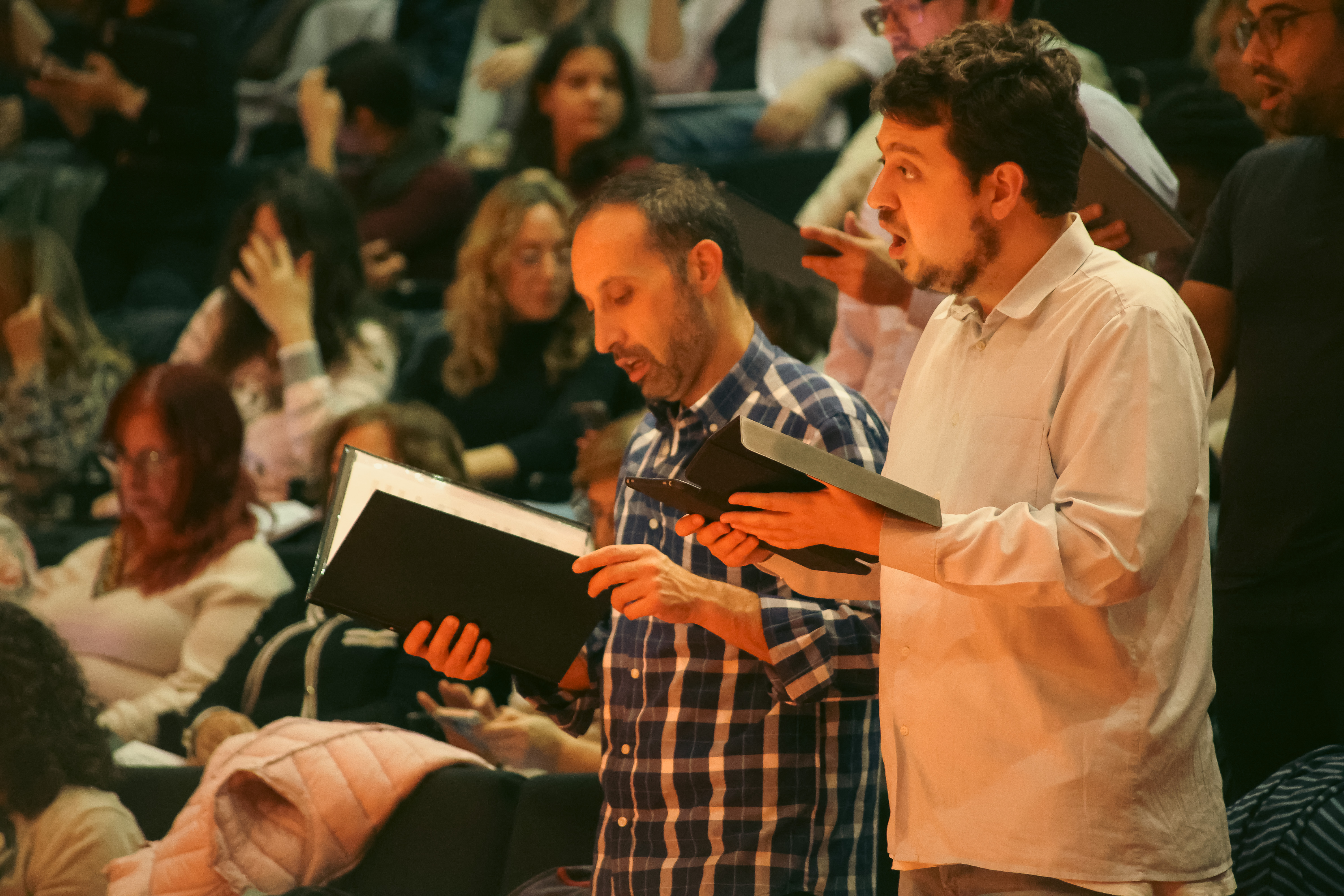
© Inês Aleixo
“Natal sem música é como um jardim sem flores”
In a large group like the EVPM, ‘it's very difficult to choose a repertoire that appeals to everyone,’ and when you can't prepare a symphonic choir, ‘you prepare a more diverse repertoire, which is still serious, but which reaches more audiences,’ explains the conductor. This is what this year's Christmas concerts will be like.
José Manuel's experience shows that this type of concert is always well attended, ‘which means that people like it’. And although in Portugal there isn't as strong a tradition as in England, where there's no Christmas without Christmas Carols, the EVPM has been working hard to make choral music at Christmas a reality.
For the conductor, ‘Christmas without music is like a garden without flowers’ and, looking at the loyal audience they already have at these concerts, he believes that ‘this kind of music does have an impact on people’.
“Nós juntamos pessoas pela música”
Tomás Franco is a choirboy and the president of the Pro Musica Vocal Ensemble Association. The young man believes that the mix of Christmas themes they are preparing ends up being ‘more receptive to the public’. The group is working on short pieces from all over the world, from the Portuguese Christmas songbook to Latin American themes and the English classics of the season. ‘We put it all together and put on a concert,’ Tomás tells us, as if he were reading us a cookery recipe.
As president of this association, he confesses that ‘choir members are more motivated when a large, musically more challenging piece is prepared’, but he is certain that ‘it is in these concerts, with shorter pieces, that people are more united and more available, not only to do the concerts, musically speaking, but to enrich them, with decorations for the space or gifts for the audience’, always with the aim of making that moment special for those who attend. At EVPM, ‘we bring people together through music,’ he concludes.
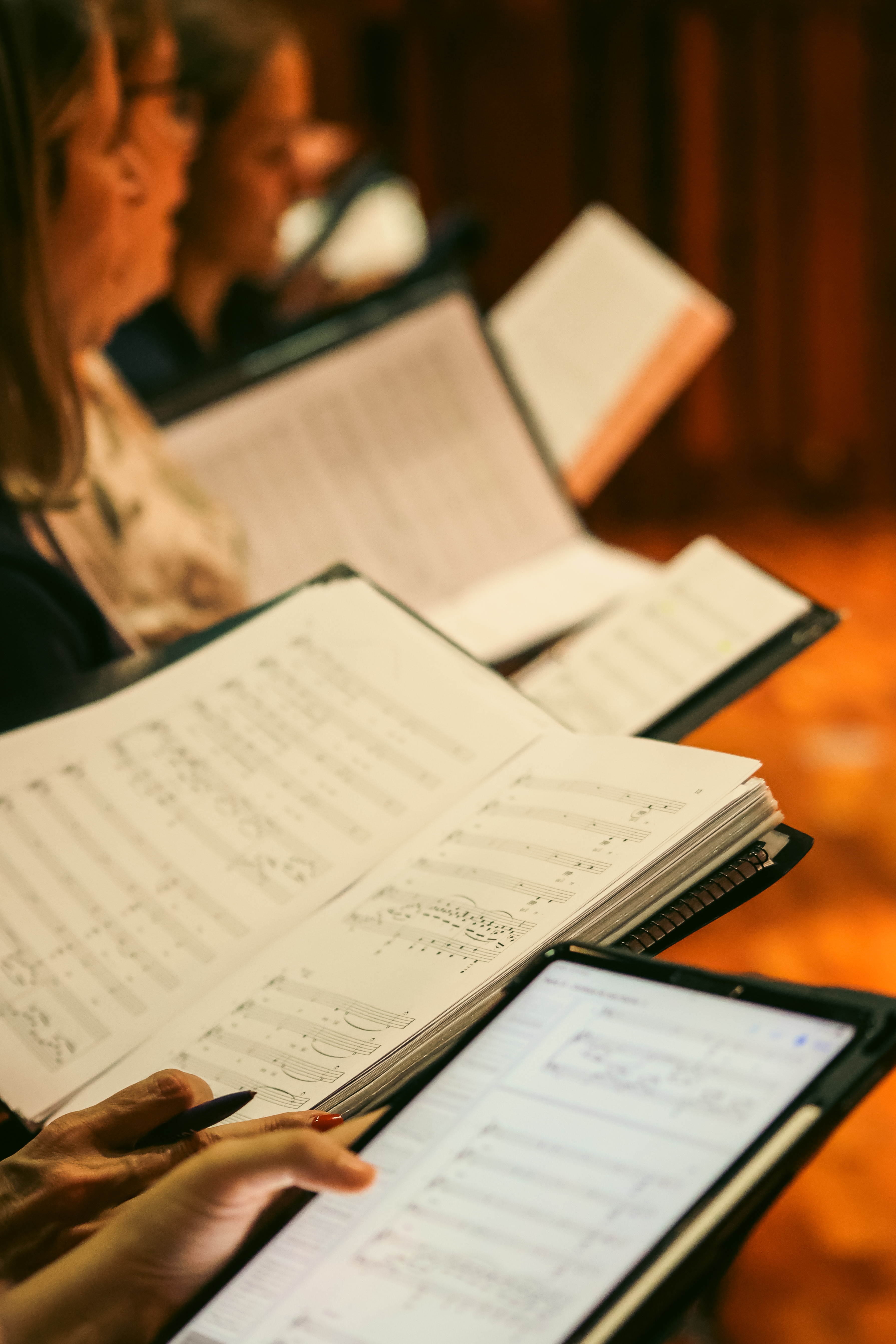
© Inês Aleixo
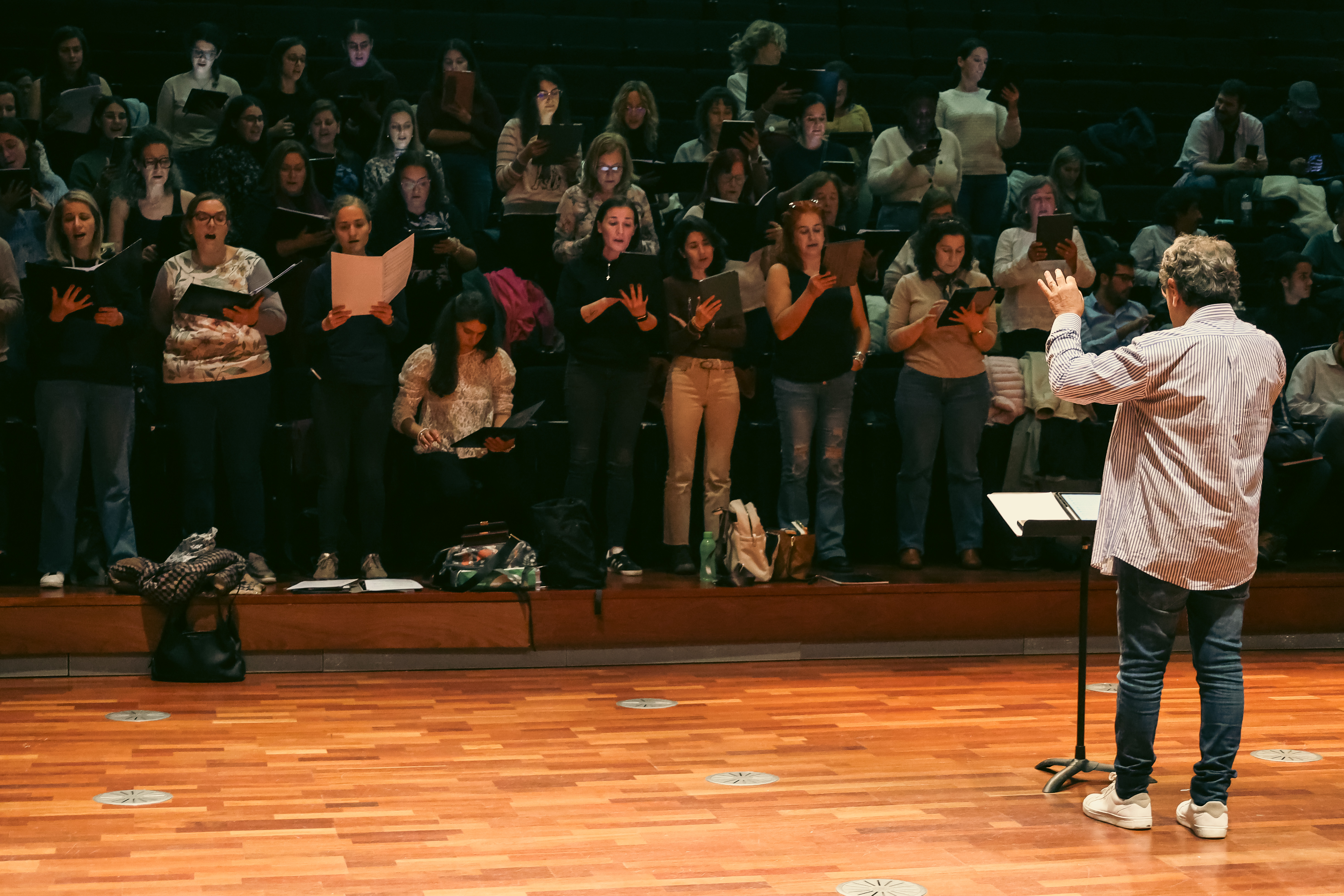
© Inês Aleixo
Joana Costa starts preparing for her Christmas in September and it's the construction process that is most important to her, because on the 25th it's like a chocapic, ‘poof, it's gone!’, she tells us, amusingly. As she's part of several musical projects, this is a time of a lot of vocal wear and tear, but it's also ‘warmer, with lighter, more engaging repertoires and more affection from the audience’. Joana's calendar is full in December, but she can't imagine a Christmas without the hustle and bustle of the season's rehearsals and concerts.
Pedro Valle has been with the EVPM for many years, almost since the beginning. And even after all this time, he tells us that ‘it's still good to do Christmas concerts, especially because you discover new music every year’. He tells us that what makes them different and special is mainly down to the audience.
The English composer John Rutter justifies why he composes so much Christmas music by the fact that the public listens to it. And Pedro agrees, because ‘it's good when the audience comes, joins in and sings too. For us choir members, it's very gratifying to see the audience giving their all,’ he says. At a time when people are more inclined to listen and sing, ‘we have to take advantage of the energy that the public gives us,’ he concludes.
Orfeão Universitário do Porto
At the headquarters of the Orfeão Universitário do Porto (OUP), created in 1912, we find a very young choir. ‘Welcoming’ and “integrating” are certainly in this group's dictionary: the way they welcome us into their space can only mean that.
The choir, currently directed by conductor António Sérgio Ferreira, is made up of around 45 university-age members. They do two rehearsals a week and will be on stage six times this Christmas. The most important (the University of Porto Christmas Concert) will be on 17 December at 7pm in the Clérigos Church.
The work for the Christmas concerts begins in September, ‘at the height of summer, and singing Christmas songs at that time is very out of context,’ confesses António Sérgio.
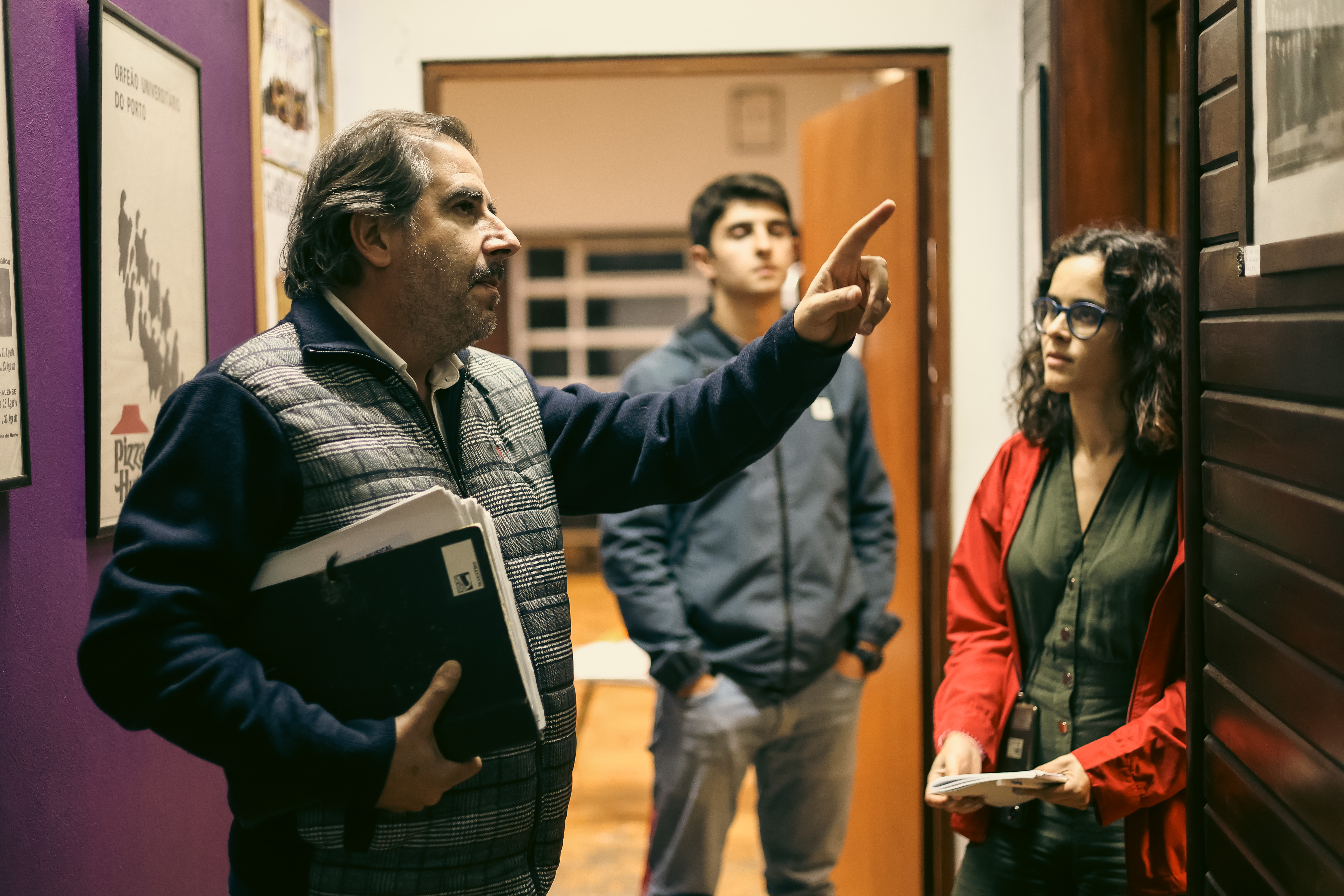
© Inês Aleixo
For the conductor, this time of year has one factor that sets it apart from the rest: the public's availability and willingness to listen to a lot of choral music. ‘What you notice is that the public's enthusiasm carries over to the choir. The preparation for this type of concert is no different to any other, but the experience the choristers have on stage is,’ he concludes.
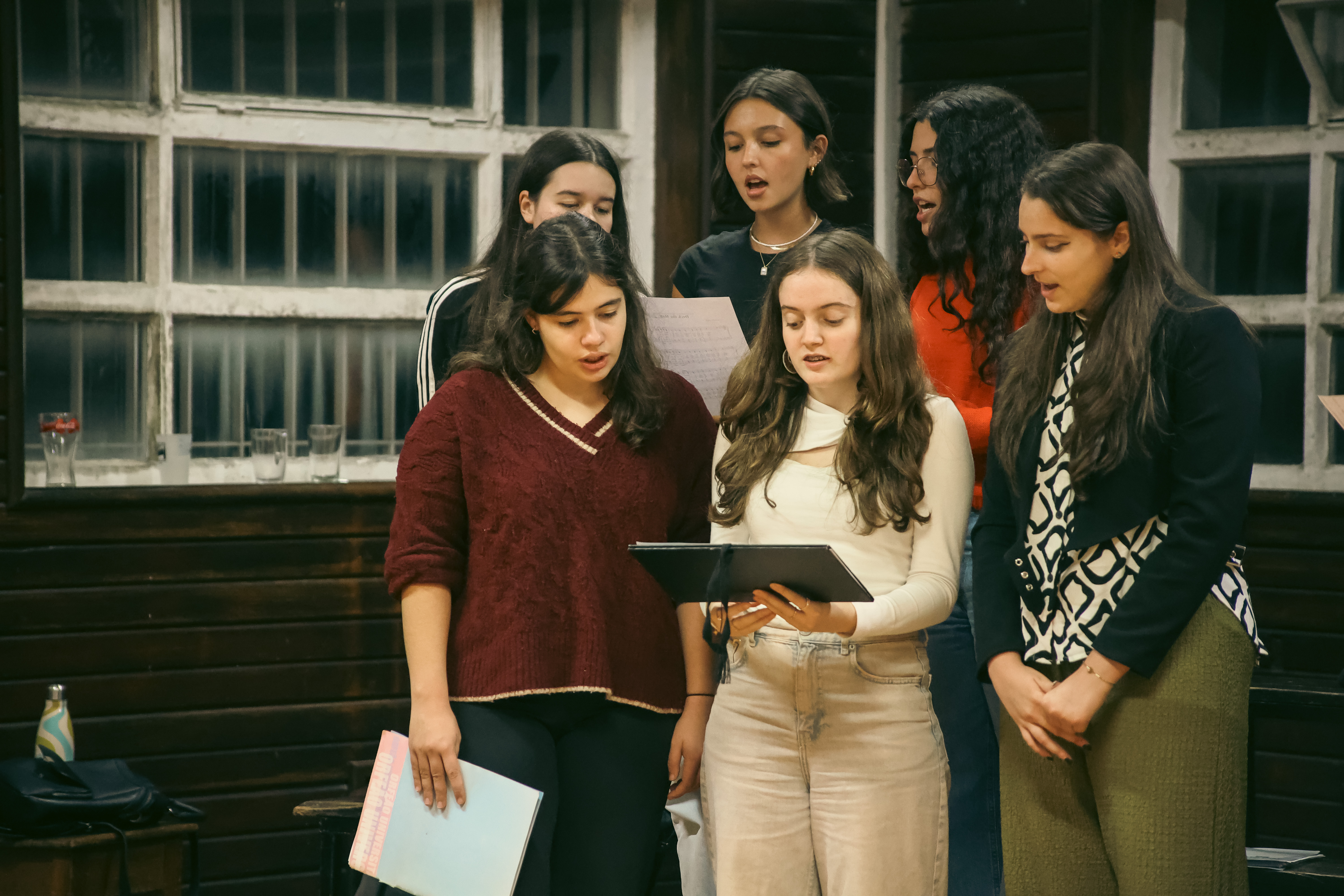
© Inês Aleixo
Um legado de gerações
Pedro Martins is 19 and studying Electrical Engineering. Ana Coelho is 20 and studying Communication Design. This is their second year in the choir. Without much musical experience, they joined the OUP Choir out of curiosity sparked by their parents' memories.
These two young people have the OUP in their blood: Pedro's mum and Ana's parents were part of the choir when they were students at the University of Porto. They grew up listening to the stories of the Orfeão and, they say, there was no other choice but to join this group, ‘at least to try it out’.
Pedro explains to us the fascination of being part of a choir, above all because of the process of creating music, ‘where melodies are built up suit by suit’. Ana adds that ‘they have a lot of concerts at this time’, but the sharing associated with the Christmas spirit helps them feel ‘more connection between the choir and the audience’ while they sing.
Salomé is 21 and this is her second year at OUP. She was ‘pushed’ by a friend and has no regrets. For her, this is a different community, since at OUP they have the chance to ‘learn from each other's successes and mistakes, while experiencing art in a very personal way’.
Inês, 21, left music to study electrical engineering. She's been at OUP for four years and also came through the hands of a friend. Although she didn't want to make music her life, she didn't want it to stop being part of her. ‘Coming to OUP was the best decision I ever made and I couldn't be more grateful for the experiences it has given me,’ she confesses.
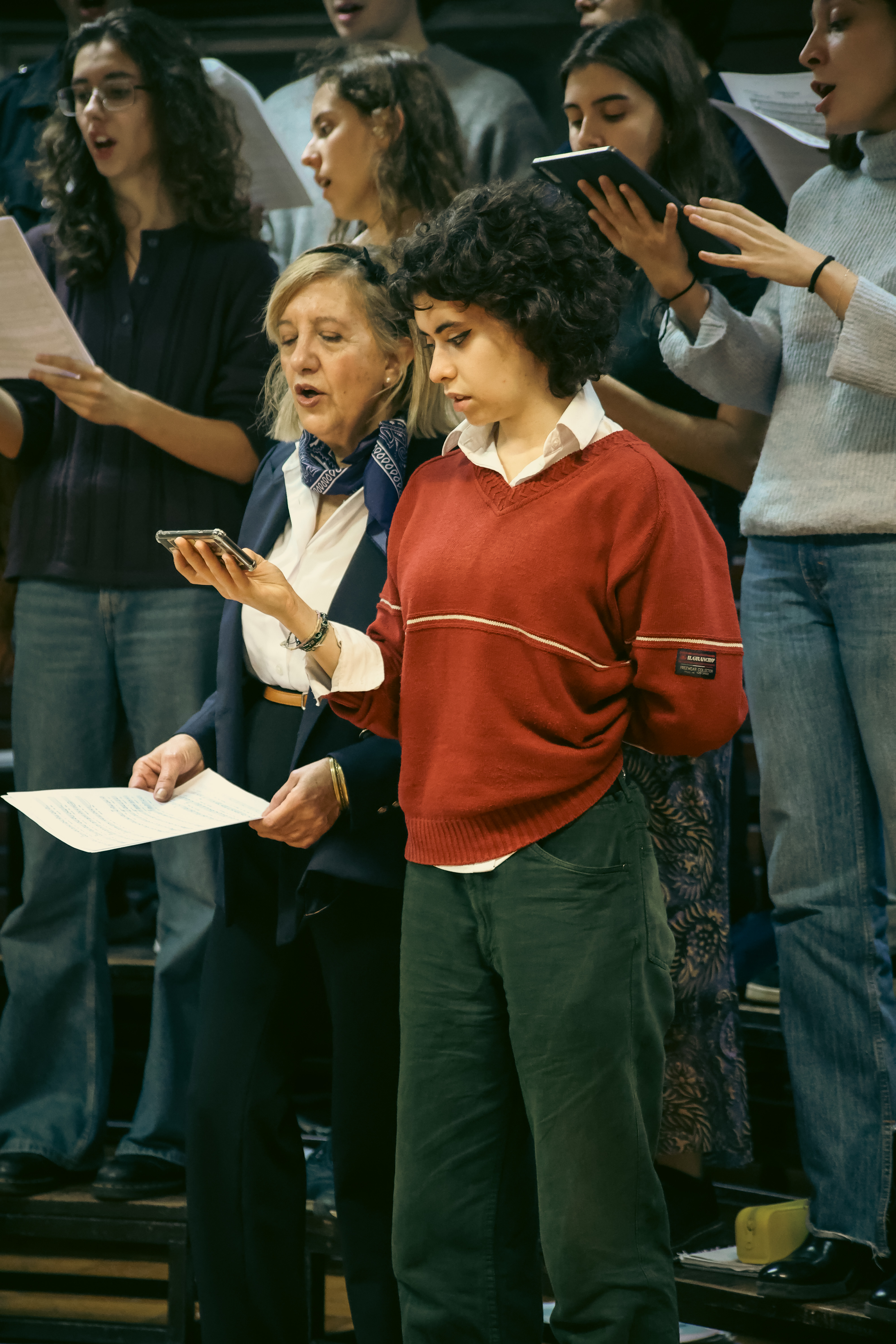
© Inês Aleixo
E sobre os concertos de Natal?
There are obligatory songs, but Inês never tires of singing them and ‘the public is very receptive to this type of event and sings along with us... it's very magical’. Salomé laughingly recalls the start of rehearsals in September, still thinking about the beach and already singing ‘Feliz Navidad’. And families are involved even if they don't want to be: if Salomé's parents learn the songs while their daughter sings them around the house, Inês' parents never miss a concert. Can we guess where they'll be on the 17th at 7pm?
Coro da Sé Catedral do Porto
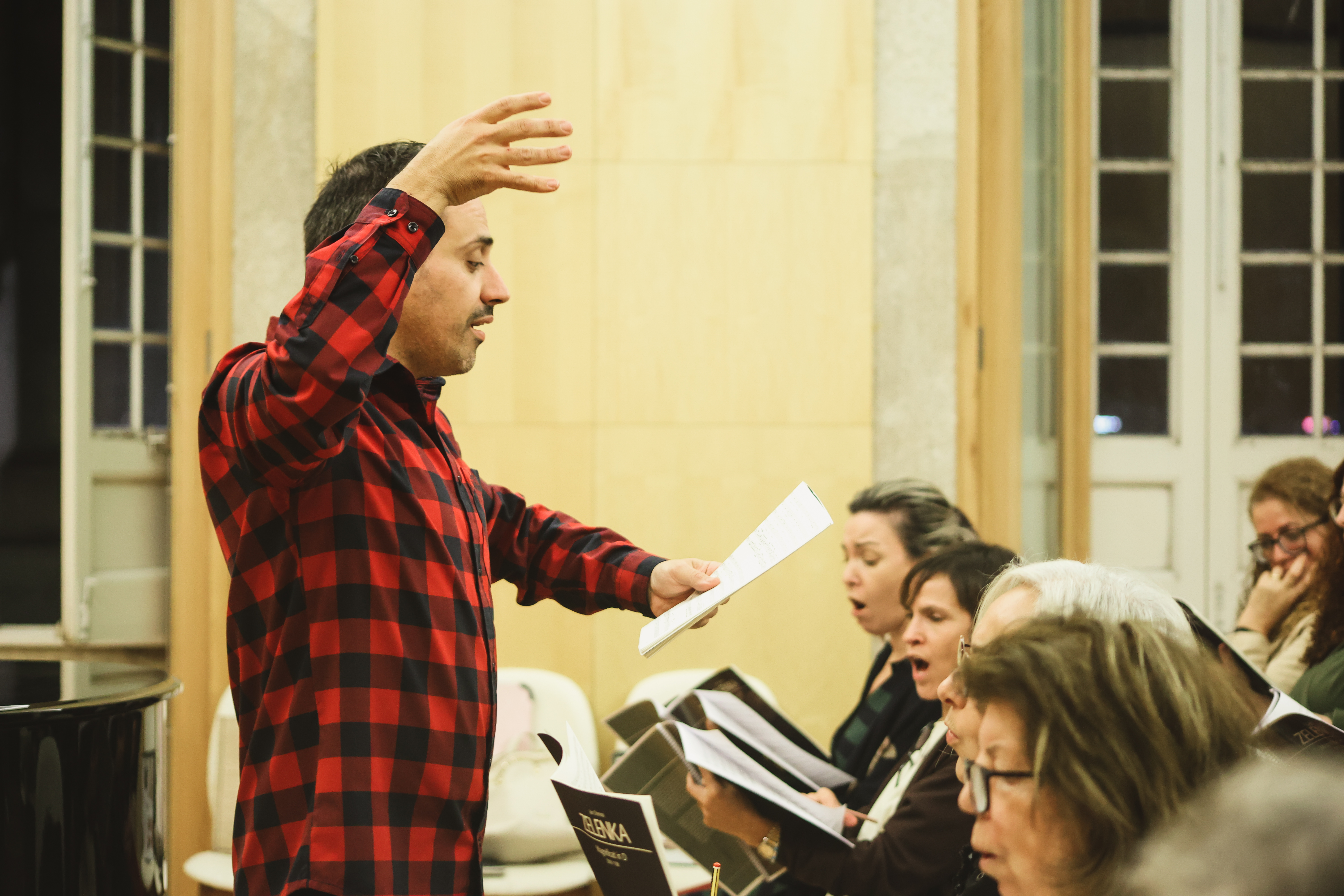
© Inês Aleixo
Closer to Christmas Day, it's the turn of the Porto Cathedral Choir to ‘sing Christmas’. On 21 December, in the house that gives it its name, works by Zelenka and Homilius will be performed. The concert is scheduled for 9.30pm and admission is free.
Formed in 1971, Tiago Ferreira has been artistic director since 2015. With around 80 members, it holds two rehearsals a week, in addition to group rehearsals focussed on vocal technique.
We attended one of these rehearsals and, as soon as we arrived, still in Terreiro da Sé, we could hear the choir's voices. On this day, there are more than 50 people in the room (including choristers, conductor and a special guest: António Ferreira dos Santos, the choir's founder).
The work they are preparing is imposing and serious, but there are still smiles. In this room, there is the tranquillity of someone who knows what they are doing. The challenge is real and the focus on the work, accompanied by surgical rigour, is the necessary ingredient for everything to be ready by 21 December.
The Cathedral Choir was born out of the need for the city to ‘have quality sacred music’, explains Miguel Simões, the choir's president. After studying in Germany, Ferreira dos Santos returned to Portugal with this objective. He approached Dom António Ferreira Gomes, the bishop of Porto at the time, to explain to him what would be needed to fulfil this mission: to build a large organ in the cathedral, to have a large choir in residence and to have people composing music. And so, in 1971, the Porto Cathedral Choir began its history.
The Christmas concert has been a tradition for many years in this choir and in the city. The Saturday before Christmas Day is, as a rule, the day set aside for this event, which is also full of traditions: whatever the programme, the concert ends with the traditional Adeste Fidelis, with the participation of the audience.
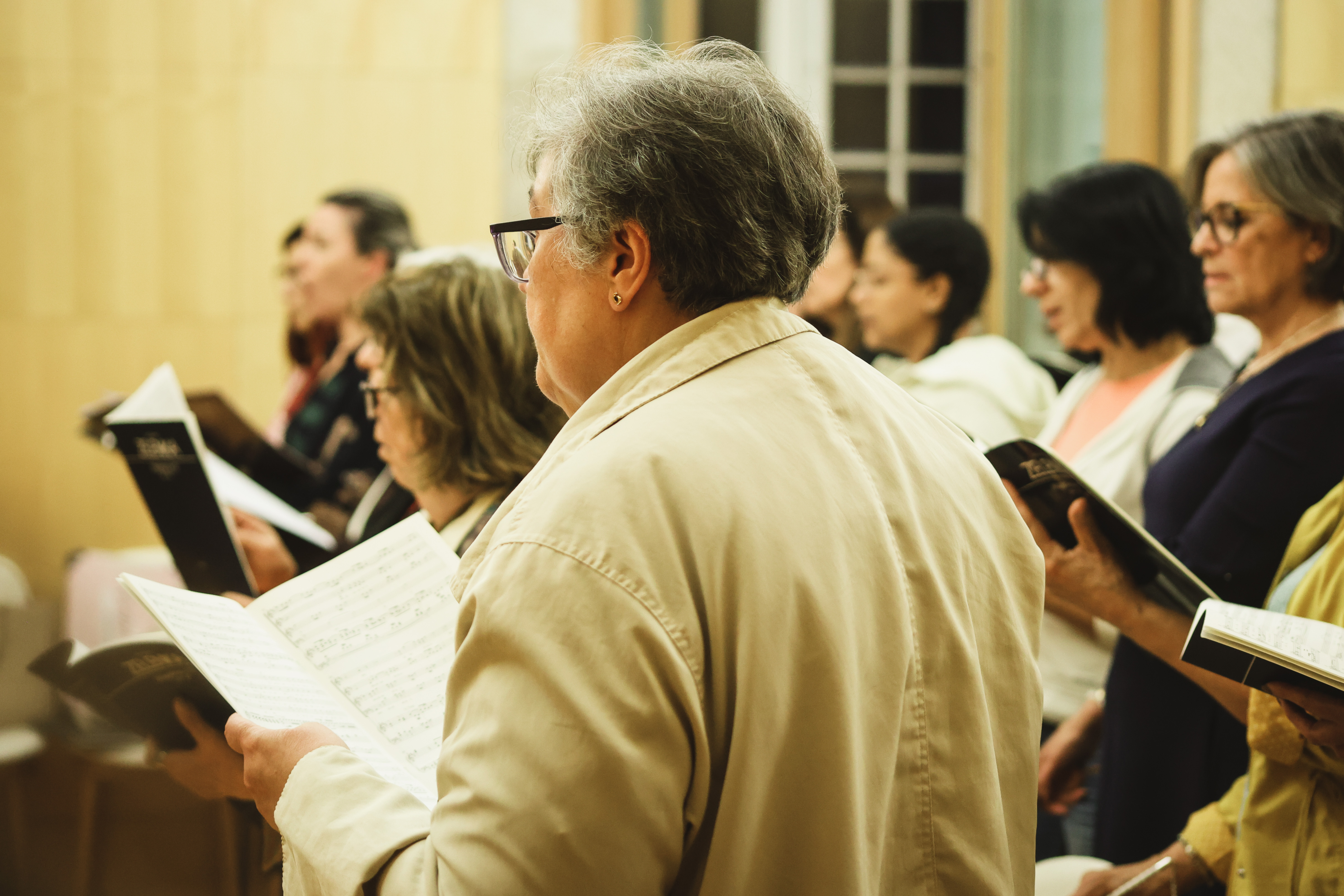
© Inês Aleixo
At Christmas, ‘the music tends to be lighter, with bigger modes, with few dissonances,’ explains Miguel. And this ‘choir thing’ has its curiosities: ‘the Portuguese are shy about singing, but at Christmas everyone sings, even the shy ones,’ he concludes. Is it possible that this is also the magic of Christmas?
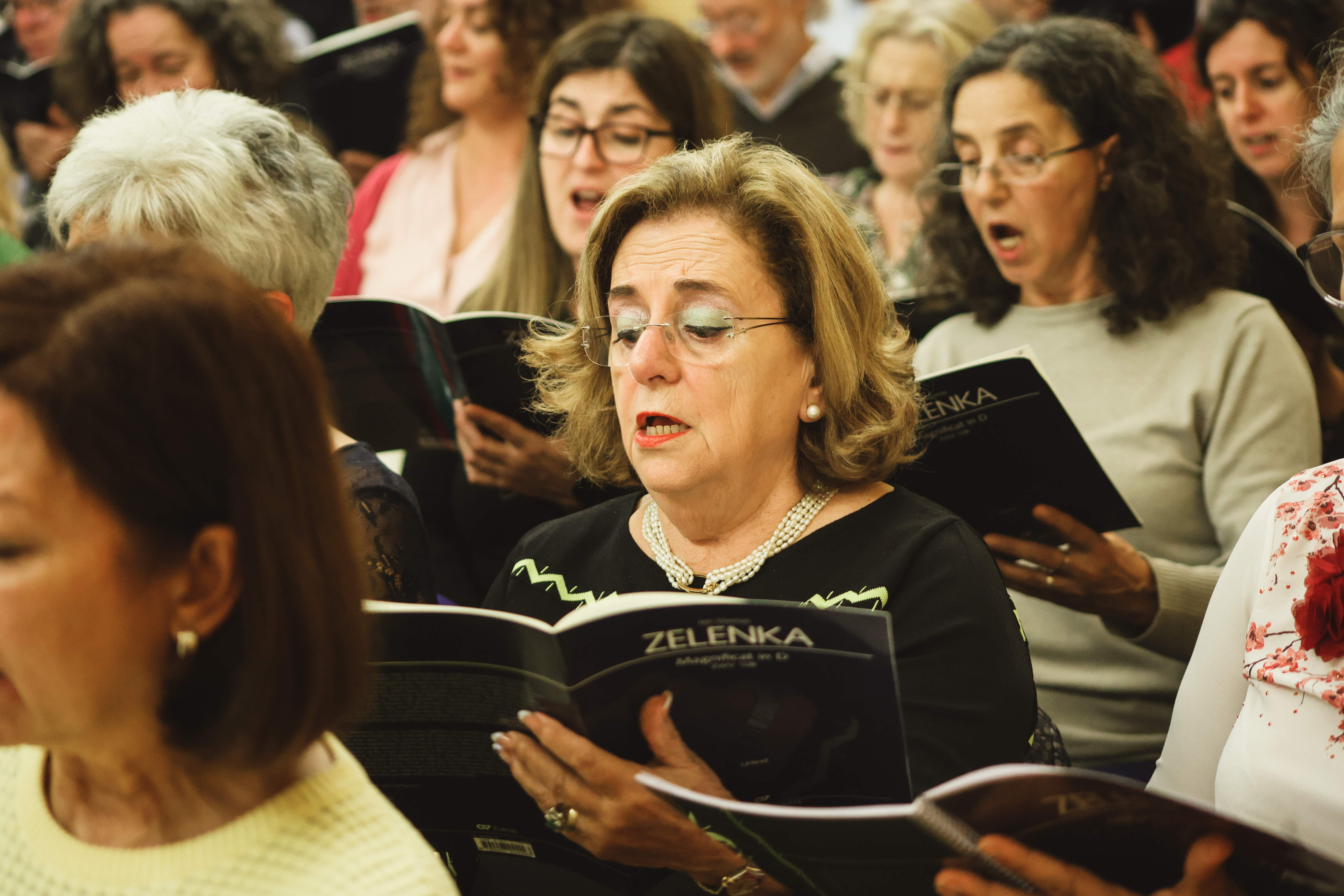
© Inês Aleixo
João Paulo is 21 years old and has been in the choir for about a year. He is an organist in the parish where he lives and studied organ with conductor Tiago Ferreira, who challenged him several times to join the group. After attending two concerts at Easter, he couldn't turn down the invitation and joined the choir. The young man admits that the work is demanding and the repertoire difficult, but he guarantees that ‘it's worth it’.
Maria Urânia is 79 years old, has been in the choir for 35 years and is one of the oldest members. She discovered a taste for liturgical music in the parish of São Martinho de Cedofeita, but it was when she started attending concerts by the Cathedral Choir that she realised she needed other challenges. She joined the group and has never stopped since. ‘This is a very close-knit group and it's where I feel good,’ she says.
Concerto de Natal com estreias nacionais
Conductor Tiago Ferreira explains that the aim this year was to do something different. The two composers chosen are contemporaries of Bach and therefore ‘absorbed some of the characteristics of his work’, he concludes. Little known and little worked on in the world of choral music, ‘everything leads us to believe that these two works have never been performed in Portugal’.
In a concert offered by the choir to the city, the tradition is of a ‘full church’. Tiago recalls the 2023 concert, which took place on a very cold night, so cold that the musicians couldn't go outside because of the risk of their instruments cracking. But despite the cold, ‘the Cathedral was full and there were people sitting on the floor, on the stone’.
For the young conductor, who believes that music can transform people, ‘it's a pleasure to direct this choir’. ‘Some rehearsals are easier than others, but usually people leave here feeling lighter,’ he concludes.
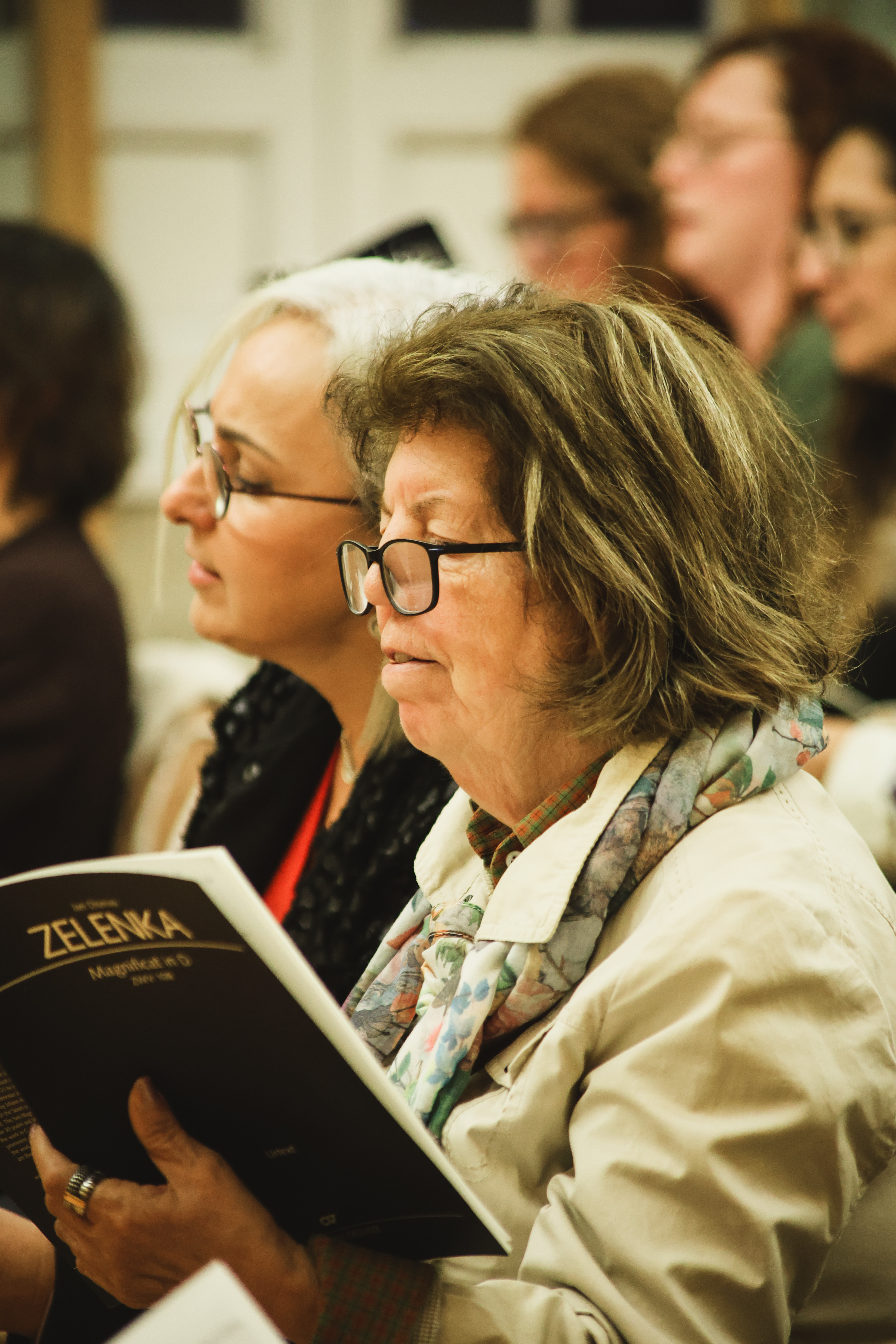
© Inês Aleixo
These are just three of the many choirs that rehearse in Porto. They are amateurs and dedicate several hours a week to rehearsals and concerts. Christmas is a busy time for all three groups, but nobody gets tired. Whatever their age, the people who make up these choirs do it for their love of music, but above all because singing in a choir is good for their health. We could go back to definitions and theoretical concepts, but let's leave that to those in the know. In practice, what we see is that there is great harmony between all the choristers and enormous respect for the work that is done. The conductors command ‘the troops’, the choristers follow their instructions and, in the end, we have a result that is magical... just like Christmas.
by Catarina Madruga
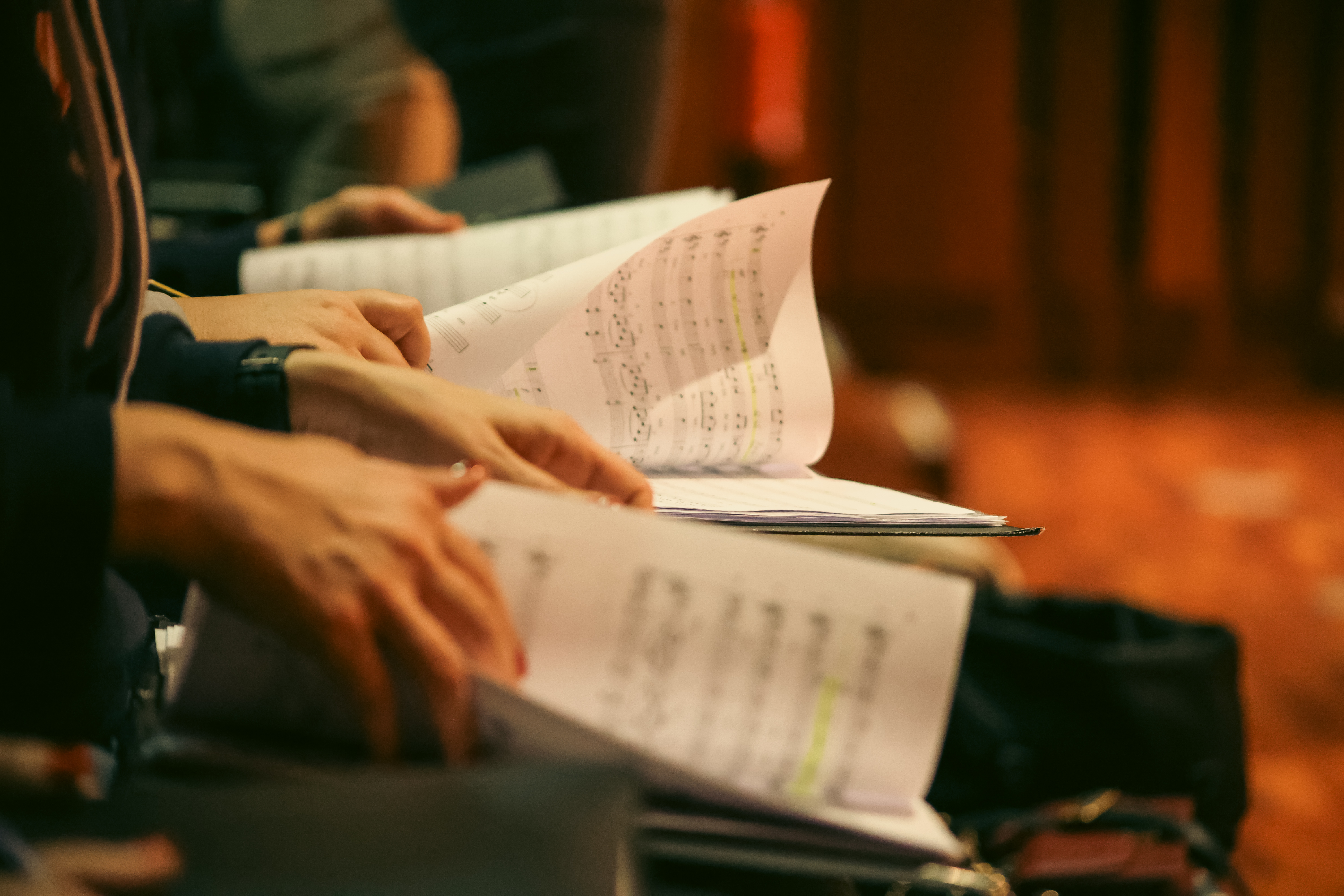
© Inês Aleixo
Share
FB
X
WA
LINK
Relacionados


